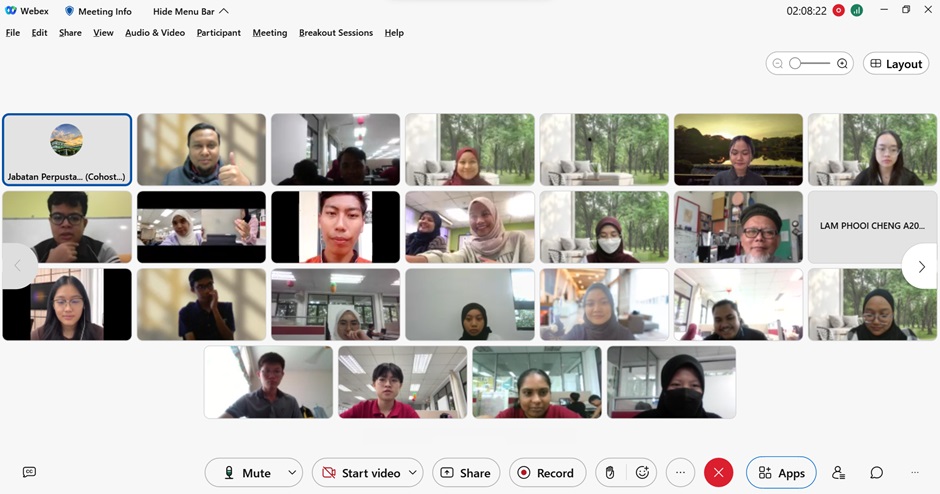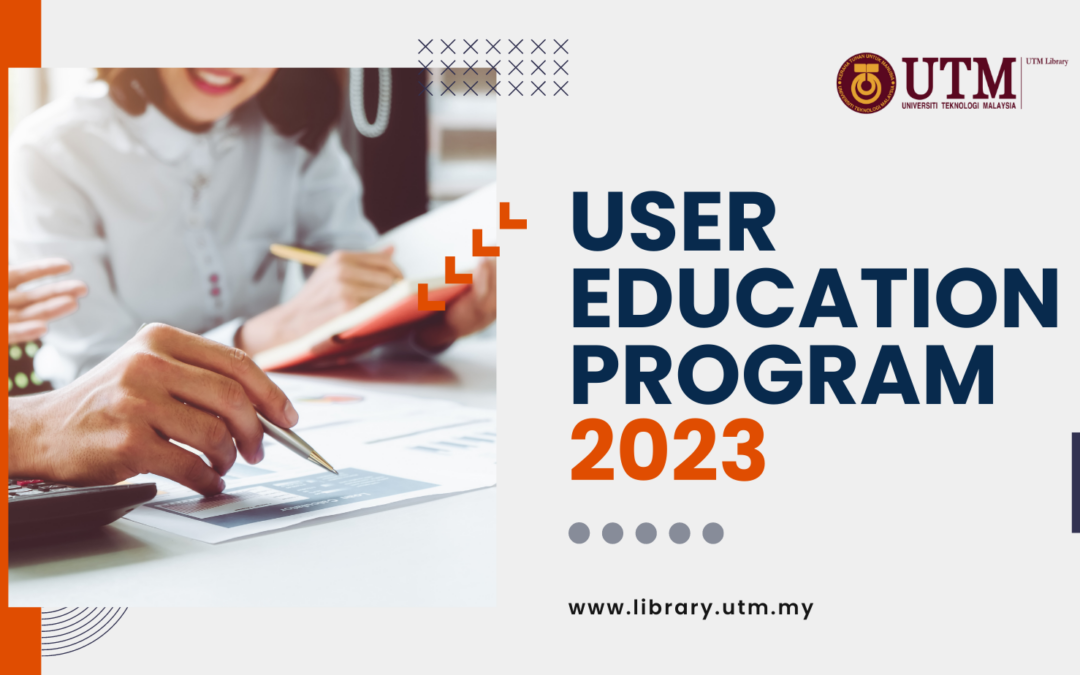In October 2023, a total number of two (2) User Education Programs were conducted with success. It consists of two user education webinars. These programs are aimed at providing valuable knowledge and information-searching skills to participants, empowering them in various aspects of education and research.
The User Educations Program conducted are:
1. Research Information Literacy for Undergraduate (2 programs)
The User Education Program covers topics:
1. Information searching skills which is the ability to effectively and efficiently find relevant and reliable information using various tools and techniques.
2. UTM Massive Open Online Course (UTM MOOC) which focuses on the UTM Library Skills online program to guide students and staff to improve their information searching and retrieval skills for education and research in science, technology, and engineering.
3. Endnote X9 for students. EndNote is a powerful tool that streamlines the reference management process, saving time and effort for researchers and writers. It is widely used in academic and scientific communities to maintain organized and accurate reference lists, ensuring that citations are consistent and conform to specific citation styles required by publishers or academic institutions.
4. Turnitin for students. Turnitin is a web-based text matching software widely used in educational institutions, universities, and other academic settings. It is designed to help educators and instructors identify potential instances of plagiarism in students’ academic work, such as essays, research papers, theses, and other written assignments.
5. Where to publish? It refers to the process of identifying and selecting suitable journals, conferences, or other platforms for publishing scholarly research or academic work.
A total number of 403 participants have joined the program. They are students and staff from various schools/faculties. By joining the User Education Programs, it enables each participant to:
• conduct comprehensive and efficient research
• better equipped in handling academic assignments, research papers, and projects
• access information independently enables ongoing self-education and personal growth
• locate and access relevant information helps individuals solve problems and make informed decisions in various contexts, whether academic, personal, or professional
• understand and respect the copyright and intellectual property rights. This fosters ethical behavior in information use and avoids plagiarism.
• be resourceful, adaptable, and open to exploring various sources and formats of information, including books, journals, articles, online databases, and multimedia resources



